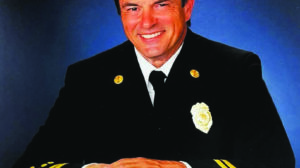Whether it’s a corporate business or a franchise, companies that expand their businesses into new areas spend a lot of time and money assessing a community before they break ground.Take Wal-Mart, for example. The giant retailer is headed for Falcon – an area that fit their criteria for growth.”We look for whether there is an opportunity to grow, an opportunity for development, if a community asks us to open a store, or if a community is interested in Wal-Mart coming,” said spokeswoman Marisa Bluestone. “We go where it makes sense.”Apparently it’s made sense in a number of communities nationwide. Bluestone said Wal-Mart has 3,900 retail stores, which includes Sam’s Club, Neighborhood Markets, and Wal-Mart Super centers. There are 13 Wal-Mart stores, 15 Sam’s Clubs and 45 Wal-Mart super centers in Colorado. The company employs about 1.3 million associates across the countries, with 24,000 in Colorado, she said.Although the details on how each company determines expansion into one area is proprietary and often a “secret,” Stacey Calbert, public relations manager for Brinker International, said they first track consumer demographics and brand-specific site criteria to determine if their business is right for an area. She said research and expert knowledge of the market identifies issues, such as area traffic, access to the business, visibility, quality co-tenancy and reasonable investment costs.Investing in any community also means working with local government and planning departments.Businesses moving to a new area and building from the ground up must submit a proposal for construction to ensure the plans are consistent with county codes, said Tony Deconinck, El Paso County Development Services project manager. “The county development services makes sure they are complying with code and things, such as drainage issues, traffic and setback,” he said.A team, which may include a project manager, planner, engineer, long-range planner, and flood plain teams, is assembled at the earliest possible stage of development to address construction issues, Deconinck added.”There are dozens of procedures, depending on what’s being requested,” he said.Despite bureaucracies, when the consumer calls, the smart business answers.Most of the 1,200 Chili’s restaurants worldwide are stand-alone operations located near major retail, residential and commercial centers. But keeping up with consumer trends often dictates veering off center. “Chili’s, Too can now be found in shopping malls, airports and similar non-traditional locations both domestically and internationally,” Calbert said. “We look at a lot of growing areas that have a lot of retail and a lot of businesses. We want to be where guests are working and playing.”Franchised businesses have the same goals, but different methods of getting there. A decision to locate in a new area is determined by a new franchise owner, rather than a corporate board room.Opening a new franchise can range between $30,000 to several million dollars, said Rick Gretz, owner of Marick Services Inc., a franchise consulting company. To open a franchise, the franchisee often pays up-front costs and attends a two to three week training course, he said.”Good franchisers do a good job of screening … they are selective and careful about who represents their business,” Gretz said.Mark Tanner owns eight Domino’s Pizza franchises, including the Domino’s in Falcon. He started with Domino’s as a part-time employee and has been a franchisee for 31 years.””Domino’s pretty much lets you take a chance and it’s up to you to make it a success,” Tanner said.Product consistency is important to the franchise but success is determined by location, location, location.






